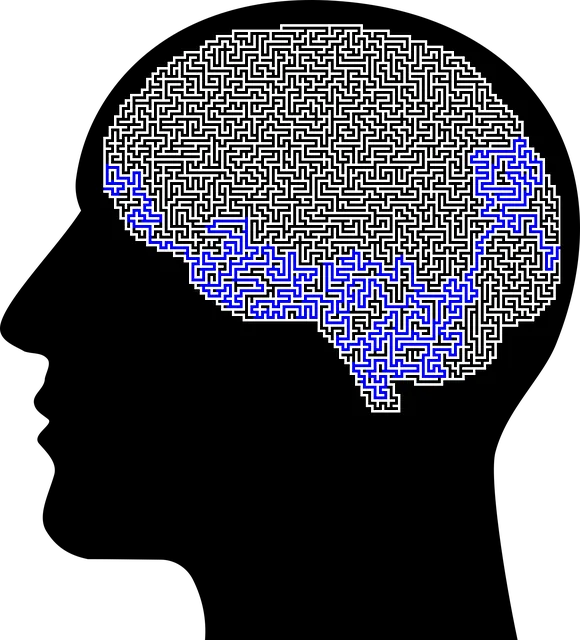Cultural sensitivity is crucial for effective mental healthcare, especially in diverse regions like NorCal, where organizations like Kaiser Permanente provide accessible services via dedicated phone lines. Recognizing cultural differences helps professionals tailor practices to clients' values and norms, ensuring inclusive healing environments. Unique mental health challenges faced by diverse backgrounds require culturally competent care, addressing language barriers, stigma, and specific ethnic/religious needs. Kaiser Permanente in NorCal uses mindfulness, tailored therapy, and Trauma Support Services to enhance cultural sensitivity, improving patient outcomes and reducing the mental healthcare gap. Their proactive approach, including public awareness campaigns, has significantly increased access to services in Littleton and beyond.
Cultural sensitivity is a cornerstone of effective mental healthcare, especially in diverse communities. This article explores the impact of cultural background on mental health and treatment-seeking behaviors, delving into challenges faced by various groups in accessing services. We provide a guide for mental health professionals to implement culturally competent practices, illustrated with case studies, including the successful integration of cultural sensitivity at Kaiser Permanente Norcal (Littleton). For more information, contact the Kaiser Permanente mental health phone number Norcal Littleton.
- Understanding Cultural Sensitivity: A Cornerstone of Effective Mental Healthcare
- The Impact of Cultural Background on Mental Health and Treatment Seeking
- Challenges Faced by Diverse Communities in Accessing Mental Healthcare Services
- Strategies for Culturally Competent Practice: A Guide for Mental Health Professionals
- Case Studies: Successful Implementation of Cultural Sensitivity in Kaiser Permanente Norcal (Littleton)
Understanding Cultural Sensitivity: A Cornerstone of Effective Mental Healthcare

Cultural sensitivity is a cornerstone of effective mental healthcare, crucial for building trust and ensuring access to quality treatment among diverse populations. It involves recognizing and appreciating the unique values, beliefs, and practices that shape individuals’ experiences of stress and well-being. In regions like Norcal, where organizations like Kaiser Permanente offer mental health phone numbers as part of their services, cultural sensitivity becomes even more vital. Understanding and respecting cultural contexts helps mental healthcare providers tailor their approaches, ensuring that interventions align with clients’ personal and communal norms.
For instance, the Mind Over Matter Principles, promoted by initiatives like Stress Management Workshops Organization, can be interpreted and applied differently across cultures. What works for one community might not resonate with another, emphasizing the need for culturally competent practices. Similarly, Mental Health Policy Analysis and Advocacy must consider cultural sensitivities to address disparities in access and outcomes. By integrating these considerations, mental healthcare providers from Littleton to beyond can create inclusive environments that foster healing and growth for all individuals, regardless of their cultural background.
The Impact of Cultural Background on Mental Health and Treatment Seeking

People from diverse cultural backgrounds often face unique challenges that can significantly impact their mental health and treatment-seeking behaviors. Cultural beliefs, values, and practices shape how individuals perceive and express emotional distress, influence help-seeking attitudes, and determine preferred approaches to therapy. For instance, some cultures may prioritize familial support and community interventions over individual therapy, while others might embrace alternative healing methods or have specific rituals for addressing mental health issues. Understanding these cultural nuances is crucial when providing effective care, as it ensures that services are accessible, culturally competent, and respectful of clients’ identities.
In the context of Norcal Littleton and the broader region served by the Kaiser Permanente mental health phone number, considering these cultural factors can make a significant difference in patient outcomes. Community Outreach Programs focused on raising mental health awareness within diverse communities can help reduce stigma, encourage early intervention, and improve treatment adherence. Additionally, incorporating culturally sensitive practices like Mood Management techniques and Coping Skills Development tailored to specific ethnic or religious groups can foster better engagement and satisfaction with mental healthcare services.
Challenges Faced by Diverse Communities in Accessing Mental Healthcare Services

Many diverse communities face unique challenges when it comes to accessing mental healthcare services. Barriers include cultural and linguistic differences, limited availability of culturally competent professionals, financial constraints, and a lack of awareness or stigma surrounding mental health issues. For instance, in regions like NorCal, where organizations such as Kaiser Permanente offer mental health phone numbers for their members, ensuring these services are accessible and acceptable to all requires specialized approaches.
These communities may have specific needs related to self-esteem improvement, stress management, and building empathy within healthcare settings. For example, individuals from different ethnic or cultural backgrounds might prefer certain therapeutic modalities or face challenges in communicating effectively due to language barriers. Therefore, mental health professionals and organizations like Littleton must strive to understand and address these nuances to foster trust and provide quality care tailored to diverse populations.
Strategies for Culturally Competent Practice: A Guide for Mental Health Professionals

Mental health professionals play a vital role in fostering inclusive and supportive environments for individuals from diverse cultural backgrounds. To achieve this, adopting culturally competent practices is essential. One effective strategy is to embrace mindfulness meditation as a tool to enhance cultural sensitivity. By incorporating mindfulness exercises tailored to different cultures, practitioners can create safe spaces that resonate with clients’ unique experiences and beliefs.
For instance, professionals in the Norcal region of Kaiser Permanente could offer Trauma Support Services leveraging culturally sensitive approaches. This might involve learning about specific cultural trauma responses, adapting therapy techniques accordingly, and ensuring accessibility to resources that address cultural nuances. Such initiatives not only improve patient outcomes but also encourage a broader conversation around Cultural Sensitivity in Mental Healthcare Practice, ultimately enriching the experience for both healthcare providers and their clients.
Case Studies: Successful Implementation of Cultural Sensitivity in Kaiser Permanente Norcal (Littleton)

In the diverse community served by Kaiser Permanente Norcal (Littleton), cultural sensitivity has been a cornerstone of their mental healthcare services. Through case studies, it’s evident that integrating cultural competency into practice has led to significant improvements in patient outcomes and satisfaction. For instance, their approach involves tailoring risk assessment for mental health professionals using emotional intelligence as a guide, ensuring they can accurately interpret and respond to the unique needs of various cultural backgrounds. This proactive strategy not only enhances the therapeutic relationship but also significantly improves treatment effectiveness.
Moreover, Kaiser Permanente Norcal has initiated public awareness campaigns development focused on promoting understanding and destigmatization of mental health issues across diverse cultures. By engaging communities in open dialogue and education, they’ve fostered an environment where individuals feel more comfortable seeking help. The result is a reduction in the gap between those needing mental healthcare services and those actually receiving them, highlighting successful implementation of cultural sensitivity as a game-changer in modern mental healthcare delivery.
Cultural sensitivity is a vital aspect of providing effective mental healthcare, as evidenced by the successful implementation seen at Kaiser Permanente Norcal (Littleton). By understanding the impact of cultural background on mental health and adopting strategies for culturally competent practice, mental health professionals can better serve diverse communities. Overcoming challenges in accessing services, such as those faced by many in the Littleton area, is crucial to ensuring everyone receives the support they need. For those seeking help, reaching out to organizations like Kaiser Permanente via their mental health phone number can be a transformative step towards healing and well-being.






